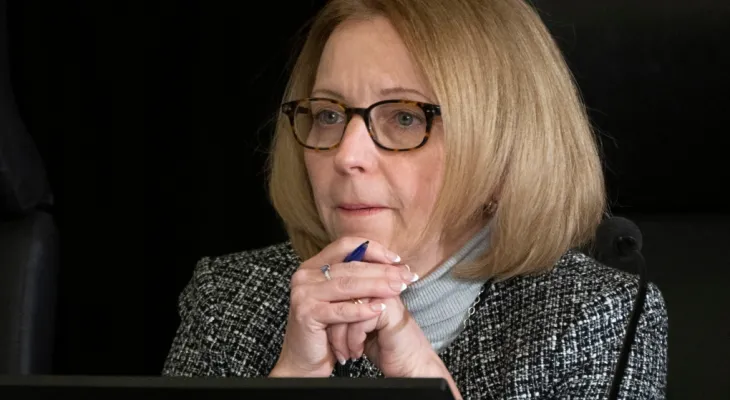Search here
Newspaper
Search here

Arab Canada News
News

Published: April 8, 2024
One of the members of the committee that monitored threats to the 2019 Canadian federal election testified on Monday that there were concerns that issuing any public alerts would be seen as interference in democracy.
Natalie Drouin, who was then Deputy Minister of Justice, gave her testimony alongside other senior bureaucrats before the public inquiry into foreign interference in the 2019 and 2021 federal elections.
The 2019 committee did not issue any warning about potential threats, although it discussed a misinformation campaign about Prime Minister Justin Trudeau which the members decided did not meet the threshold.
Drouin, now the Prime Minister’s National Security Advisor, testified in French about how Facebook proactively removed a fake article as part of its commitment to defending the integrity of those elections.
She and other bureaucrats testified about how the committee operated, including how it received intelligence briefings. Drouin defended the committee’s decision to maintain a high threshold for informing Canadians of any interference attempts.
Drouin said: "There were some risks that any intervention by the committee could do more harm than good."
"It could create confusion, and also be viewed as interference in the democratic process."
Drouin added: "We also want to make sure that we are not seen as taking a position – a partisan position – in any debate."
Monique Bériguard, the now-retired Deputy Minister of Public Safety, told the inquiry that the intelligence information the committee received was helpful but often incomplete.
In her testimony in French, she said they often received only partial information, and reports came with caveats, including whether the intelligence came from a trusted source or a new informant.
Bériguard told the inquiry that the committee had to assess the credibility and reliability of the intelligence it received, explaining that it was rare to act on a single report without further corroboration.
As the 2019 election approached, the inquiry heard that Canada was on alert for potential interference threats in the upcoming election from countries such as China, India, Russia, and Pakistan.
Senior civil service staff in the committee testified on Monday that they were aware of students being bused to the contentious Liberal nomination race in Toronto in 2019, but the details surrounding this report are unclear.
The committee debated how much it could consider the nomination campaign, given that political parties set most rules, except for financing which is regulated federally.
Drouin noted that nomination races usually take place outside election periods.
She said the committee communicated with CSIS and other agencies and asked them to provide any emerging intelligence about the nomination race.
She added that the federal Elections Commissioner and the Liberals were also informed of the intelligence, partly because the Commissioner’s mandate includes investigating "potential infractions regarding financing."
Comments